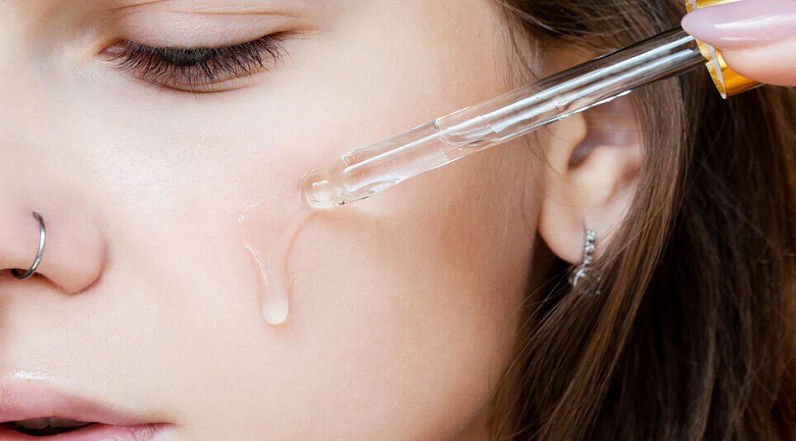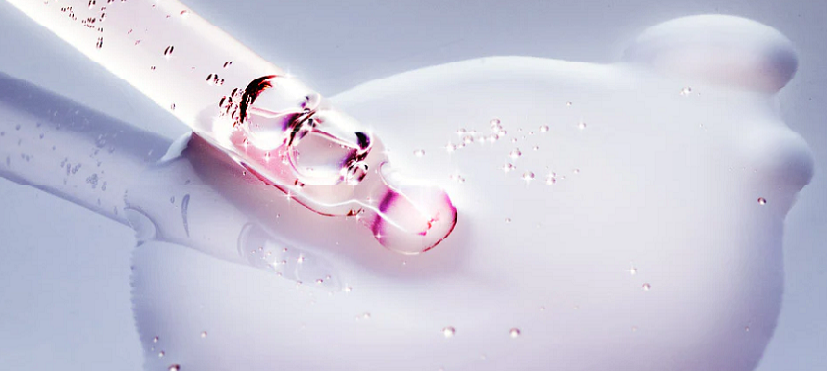
In a world increasingly leaning towards organic and gentle skincare options, Bakuchiol — a plant-based alternative to Retinol — emerges as a beacon of hope for those seeking effective yet gentle solutions for their skin concerns. Derived from the seeds and leaves of the Psoralea corylifolia plant, Bakuchiol has been a part of traditional healing practices for centuries. Today, it stands at the forefront of modern skincare, offering a multitude of benefits without the harshness often associated with Retinol.
Contents
Historical and Cultural Background of Bakuchiol
Bakuchiol has a rich and storied past, deeply rooted in traditional medicine. Here we explore the origins of Bakuchiol, tracing its journey from ancient remedies to a celebrated ingredient in modern skincare.
Origins and Traditional Uses of Bakuchiol
Bakuchiol, derived from the seeds and leaves of the Psoralea corylifolia plant, has a long history in traditional medicine, particularly in Asian cultures. For centuries, it has been used in Ayurvedic and Chinese medicinal practices. In Ayurveda, an ancient Indian system of medicine, Bakuchiol is known for its anti-inflammatory and healing properties. It has been used to treat a variety of skin conditions, including psoriasis and vitiligo, as well as to improve overall skin health and complexion.
In traditional Chinese medicine, Bakuchiol is often referred to as “Bu Gu Zhi”. The practitioners have used it for similar purposes, primarily focusing on skin ailments and as a tonic for improving vitality and health. Its application in these traditional systems laid the groundwork for its recognition as a powerful skincare ingredient in the modern era.
Evolution of Bakuchiol into Modern Skincare
The transition of Bakuchiol from a traditional remedy to a modern skincare marvel is a testament to its efficacy and the growing interest in natural alternatives. In recent years, as the demand for clean and sustainable beauty products has surged, Bakuchiol has gained prominence. Its compatibility with various skin types and its effectiveness in addressing multiple skin concerns without the harsh side effects commonly associated with synthetic compounds have made it a sought-after ingredient.
Skincare researchers and formulators began to take note of Bakuchiol’s potential after studies highlighted its similarity to Retinol in terms of molecular function. The transition was bolstered by the growing body of scientific research supporting its benefits, leading to its incorporation into a wide range of skincare products, from serums to creams. Today, Bakuchiol is celebrated not only for its natural origin but also for its scientifically backed benefits, marking a significant shift in how we approach skincare ingredients and formulations [1].

Scientific Insights into Bakuchiol
Entering into the scientific realm, we uncover the intricate details that make Bakuchiol a remarkable skincare ingredient. Here we explore the chemical composition of Bakuchiol, its mechanism of action on the skin, and the various research studies that underscore its effectiveness.
Chemical Composition of Bakuchiol
Bakuchiol, a natural compound, is classified as a meroterpene phenol. Chemically, it’s a part of the terpene family, a diverse group of organic compounds produced by a variety of plants. What sets Bakuchiol apart is its unique structural similarity to Retinol, a form of vitamin A. However, unlike Retinol, Bakuchiol is gentle on the skin, making it suitable for those who cannot tolerate the harshness of traditional Retinoids.
This gentle yet effective compound is extracted through a specific process that ensures its purity and potency. The molecular structure of Bakuchiol allows it to penetrate the skin easily, making it an effective ingredient for topical skincare applications.
How Bakuchiol Works on the Skin
Bakuchiol’s mechanism of action is intriguing because it parallels that of Retinol while being gentler and less irritating. It works by targeting key pathways in skin cells, boosting collagen production, and promoting cell turnover. This process aids in reducing signs of aging, such as fine lines and wrinkles, and improves skin texture and firmness.
Unlike Retinol, which can be overly aggressive, leading to skin dryness and irritation, Bakuchiol maintains skin integrity and balance. It is well-tolerated by most skin types, including sensitive skin, due to its anti-inflammatory properties. This adaptability allows it to cater to a broader spectrum of skin concerns and conditions [2].
Research Studies and Efficacy Involving Bakuchiol
The scientific validation of Bakuchiol’s effectiveness in skincare comes from various research studies. These studies have consistently demonstrated that Bakuchiol is comparable to Retinol in its ability to improve skin appearance and health but with a lower incidence of irritation.
One notable study published in the British Journal of Dermatology found that Bakuchiol was equally effective as Retinol in reducing the appearance of wrinkles and hyperpigmentation, but with significantly less scaling and stinging. Other research has highlighted its effectiveness in combating acne, thanks to its antibacterial and anti-inflammatory properties.
Further studies continue to explore the broader potential of Bakuchiol in skincare, investigating its impact on other skin conditions and its synergistic effects when combined with other skincare ingredients.
Benefits of Bakuchiol in Skincare
Bakuchiol’s rise in popularity is not without reason. Here we focus on the myriad benefits it brings to skincare, underscoring why it is regarded as a superior, plant-based alternative to traditional Retinol.
Anti-Aging Properties of Bakuchiol
One of the most celebrated benefits of Bakuchiol is its anti-aging properties. Its ability to stimulate collagen production is a key factor in this regard. Collagen, the protein responsible for skin elasticity and firmness, decreases with age, leading to wrinkles and sagging skin. Bakuchiol’s action in boosting collagen helps in reducing the appearance of fine lines and wrinkles, resulting in smoother, more youthful skin. Furthermore, its antioxidant properties protect the skin from environmental stressors that accelerate aging [3].
Acne and Skin Texture Improvement from Bakuchiol
Bakuchiol also shines in its ability to improve skin texture and clarity. Its antibacterial and anti-inflammatory properties make it effective in treating acne. By reducing inflammation and controlling bacterial growth, Bakuchiol helps in clearing up blemishes and preventing future breakouts. Moreover, its ability to promote cell turnover aids in fading acne scars and evens out skin texture, contributing to a clearer and more refined complexion.
Suitability of Bakuchiol for Sensitive Skin
A significant advantage of Bakuchiol over Retinol is its compatibility with sensitive skin. Traditional Retinoids often cause redness, peeling, and irritation, making them unsuitable for sensitive skin types. Bakuchiol, with its gentle nature, provides a viable alternative. It delivers similar benefits without the harsh side effects, making it ideal for those with sensitive or reactive skin. This inclusive attribute allows a wider range of individuals to incorporate it into their skincare routines without the fear of adverse reactions.
Bakuchiol Photostability and Use with Sunscreen
Unlike Retinol, which is known to be photosensitive and can degrade in sunlight, Bakuchiol is photostable. This means it does not break down or lose efficacy when exposed to sunlight, making it a more versatile ingredient for daytime use. However, it is always advisable to use sunscreen as part of a skincare regimen, regardless of the products used, to protect the skin from UV damage. Bakuchiol’s stability under sun exposure is a beneficial trait, especially for those who are looking for an effective skincare ingredient that can be used both day and night.

Comparing Bakuchiol and Retinol
In the realm of skincare, Bakuchiol and Retinol are often discussed in tandem, owing to their similar benefits. However, understanding their differences is crucial for making informed skincare choices.
Similarities of Bakuchiol and Retinol in Skin Benefits
Both Bakuchiol and Retinol are celebrated for their remarkable anti-aging properties. They share a common mechanism in promoting collagen production, which is essential for maintaining skin elasticity and reducing the appearance of fine lines and wrinkles. Additionally, both ingredients are effective in improving skin texture, evening out skin tone, and aiding in acne treatment [4].
The antioxidant properties of both Bakuchiol and Retinol also contribute to protecting the skin from environmental stressors, further enhancing their appeal as anti-aging solutions. This shared spectrum of benefits is what often leads to comparisons between the two.
Differences Between Bakuchiol and Retinol in Side Effects and Tolerance
While Bakuchiol and Retinol offer similar benefits, their side effects and tolerance levels vary significantly. Retinol, known for its potency, can cause skin irritation, redness, peeling, and increased sensitivity, especially in higher concentrations or in those with sensitive skin. This has limited its use for some individuals who might otherwise benefit from its effects.
Bakuchiol, on the other hand, is gentler and typically well-tolerated by most skin types, including sensitive skin. It does not have the same irritating effects as Retinol, making it a suitable alternative for those who have experienced negative reactions to Retinoids. This lower incidence of side effects is a key factor in Bakuchiol’s rising popularity.
Consumer Preferences and Perceptions of Bakuchiol and Retinol
Consumer preferences and perceptions play a significant role in the comparison between Bakuchiol and Retinol. There is a growing trend towards natural and clean beauty products, and Bakuchiol, with its plant-based origin, fits this demand perfectly. It appeals to those seeking natural alternatives without compromising on efficacy.
Moreover, the perception of Bakuchiol as a gentler yet effective option has led to its increased adoption, especially among those with sensitive skin or those new to anti-aging skincare. Its ease of use, without the need for a gradual introduction period typical of Retinol, also adds to its appeal.
How to Incorporate Bakuchiol into Your Skincare Routine
Integrating Bakuchiol into your skincare routine can be a seamless and rewarding process.
Recommended Bakuchiol Concentrations and Products
When choosing Bakuchiol-infused products, it’s important to consider the concentration of the active ingredient. Studies suggest that Bakuchiol is effective at concentrations ranging from 0.5% to 2%. For beginners or those with sensitive skin, starting with a lower concentration is advisable to allow the skin to adjust. As your skin becomes more accustomed, you can gradually increase the concentration if needed.
There is a wide array of skincare products containing Bakuchiol, including serums, creams, and oils. Serums are particularly effective due to their higher concentration and deeper penetration into the skin. However, the choice of product should align with your skin type and existing skincare regimen.
Combining Bakuchiol with Other Skincare Ingredients
One of the advantages of Bakuchiol is its compatibility with other skincare ingredients. It can be safely combined with hydrating agents like hyaluronic acid, nourishing oils, and even vitamin C for enhanced skin benefits. This versatility allows it to be easily incorporated into your existing skincare routine [5].
However, it’s always advisable to patch test when introducing a new product or combination of products to ensure there is no adverse reaction. Consulting with a dermatologist can also provide personalized guidance, especially if you have specific skin concerns or are using other potent skincare ingredients.
Daily Bakuchiol Skincare Routine Suggestions
Incorporating Bakuchiol into your daily skincare routine can be done in a few simple steps. If you’re using a Bakuchiol serum, apply it after cleansing and toning but before heavier creams or oils. Given its photostability, Bakuchiol can be used both in the morning and at night. However, no matter the time of day, always conclude your skincare routine with sunscreen during the day to protect your skin from UV damage.
If you prefer a Bakuchiol-infused moisturizer or oil, apply it as the final step in your skincare routine (before sunscreen in the daytime). For optimal results, use consistently as part of your daily skincare regimen.
References
[1] What is bakuchiol? Experts explain the skin care benefits of the retinol alternative
[2] Bakuchiol: Does it make skin look younger?
[3] This gentle retinol alternative is derm-approved
[4] 13 Best Bakuchiol Skincare Products, According to Dermatologists
[5] Bakuchiol: a retinol-like functional compound revealed by gene expression profiling and clinically proven to have anti-aging effects
